“Macau!!!???” you may well ask. “What the hell does an ex-Portugese colony now under Chinese rule have to do with U.S. politics?”
I got two woids fer ya, Bunky, and they ain’t “Happy Boithday.”
“Sheldon Adelson.”
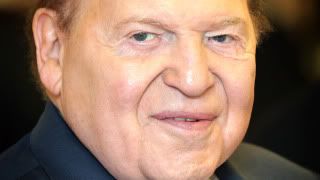
Plus two more.
“Newt Gingrich.”
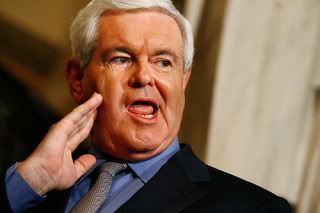
Read on.
Plus one other concept.
“As above, so below.”
And so side-to-side as well. Bet on it.
Read on.
From The New Yorker:
LETTER FROM CHINA
The God of Gamblers
Why Las Vegas is moving to Macau-by Evan Osnos
Now…this article is at least superficially in the mould of the weekly who-dun-its that so thrilled us all as kids in the Sunday papers. You know…”One dark and lonely night the lovely young Karen Whatchamacallit was walking down a lonely road outside of her home in Appaloosa, NM when suddenly, out of the cactus pounced a…”
Followed by a long and meandering, badly written “White Girl Disappears Only To Be Found Working As A Sex Slave In Timbuktu” piece, a form that morphed into the “48 Hours” form of TV mock…errr, ahhh…documentary…with which those of us with some semblance of a remaining brain between our ears are so disgustedly familiar.
But NOOOOooooo…
This one is about kleptocracy on an international, almost James Bondian-level, complete with super-villains and billion-dollar scam schemes.
And who is one of the central figures?
Why, Newt Gingrich’s good buddy Sheldon Adelson. You know…the Las Vegas schnorrer who mulitplied his ill-gotten, beggar’s winnings into a multi-billion dollar fortune and a position of at least some power in the political life of the American Empire, circa 2012? And came up maybe 4th or 5th in the schnorrer competition compared to multi-generational schnorrers like the more mainstream Ratpublican (Read “Mitt R-money.”), DemRat (Read “Barack O’Bomber.”), PermaGov and Intelligence (“Whoever stands the best chance of winning and is least likely to fuck us over once he’s in office.) factions
Yeah.
Him.
As above, so below. And side-to-side as well. Bet on it.
Read the whole article. How the shit really works as opposed to how you have been media-hyped into believing that it works.
Bet on that as well.
Some excerpts follow for those too lazy to click a link.
Read on.
In the late summer of 2007, a fifty-year-old former barber named Siu Yun Ping began making regular visits from his village, in Hong Kong, to the city of Macau, the only Chinese territory where it is legal to gamble in a casino. Macau sits on a horn of rocky coastline, where the Pearl River washes into the South China Sea. It’s about a third the size of Manhattan, covering a tropical peninsula and a pair of islands that look, on a map, like crumbs flaking off the mainland. Chairman Mao banned gambling in China long ago, but it endures in Macau because of a wrinkle of history: the city was a Portuguese colony for nearly five hundred years, and when it returned to Chinese control, in 1999, it was entitled to retain some of the flamboyantly libertine traditions that led W. H. Auden to christen it “a weed from Catholic Europe.” The infusion of China’s new riches triggered an unprecedented surge of construction, and by 2006 Macau’s casino revenues had surpassed those of Las Vegas, until then the world’s largest gambling town. Today, the quantity of money passing through Macau exceeds that of Las Vegas five times over.
Siu Yun Ping–or Brother Ping, as friends called him–had known little good fortune. He grew up in the tin-roofed hut of a squatters’ settlement on the mudflats of rural Hong Kong. The year he was born, a fatal flood swept through the neighborhood; subsequent years brought drought, then typhoons. “It was as though the gods wished to destroy us by driving us mad,” a local official recalled in his memoirs. Siu had five siblings, and his education ended in primary school. When he wasn’t cutting hair, he found employment as a tailor and a construction worker. Gambling was technically illegal in Hong Kong, but, as in many Chinese communities, it was a low-key fixture of life, and, by the age of nine, he was pushing his way into the crowd to watch local card games. At thirteen, he was playing for small stakes, and an underground gambling den hired him to hang around and keep an eye on the players’ hands. “I’m good at observing people’s movements,” he told me recently. “Whenever I saw someone cheating, I told the boss.”
As an adult, he continued to play cards, though with little success. He was an unglamorous presence–trim and wiry, with plump cheeks, bushy hair, and the fast, watchful eyes of a man accustomed to looking out for himself. He married at nineteen, had three children, divorced, and married again. Around his home village, Fuk Hing, which means Celebrating Fortune, he was also known by a nickname that he did not much care for: Lang Tou Ping, or Inveterate Gambler Ping.
While working as a barber, he befriended a skinny local teen-ager named Wong Kam-ming. Wong had grown up in the same district, one of the poorest in Hong Kong, and had also dropped out of school to find work. They occasionally met for supper at a café where Wong worked for his mother. Siu was trying to become a small-town developer, building and selling houses among the paddy fields near his village, and Wong opened his own restaurant. They didn’t see each other often, but Siu said that they were “like brothers.” They became especially close in recent years, when Wong began working on the side in Macau, as a “junket agent,” recruiting gamblers, giving them lines of credit, and earning commissions on how much they bet. One of the people he recruited was Siu.
—snip—
In August of 2007, within weeks of beginning his regular trips, Siu hit a hot streak. Some days, he won thousands of dollars. Others, he took home hundreds of thousands. With Wong’s recommendation, he was invited into opulent V.I.P. rooms, which are open only to the biggest bettors, and he became a regular on the high rollers’ helicopter trips across the water. The more he played, the more Wong earned in commissions and tips. As winter approached, Siu’s success set in motion a chain of events that eventually reached Las Vegas and showed why Macau is a place where it’s easy to get in over your head, whether you’re a former barber in Hong Kong or one of the richest men in America.
—snip—
Gambling towns are shrines to self-invention. In the eighteen-sixties, Monaco was a tiny backwater in financial distress after losing most of its land to France; then it built a casino, and became one of the world’s wealthiest places. Las Vegas was a desert outpost battered by sandstorms and flash floods–a land that the “Lord had forgotten,” in the view of nineteenth-century Mormon missionaries, who abandoned it–before it grew into the city that now attracts more people each year than Mecca. Hal Rothman, the late historian of the American West, wrote that Las Vegas posed the same question to every visitor: “What do you want to be, and what will you pay to be it?”
The ferry to Macau is greeted by a crowd of touts. When I arrived not long ago, I encountered a figure in a rotund cartoon-dog suit, waving strenuously in the heat. He was a mascot from Macau’s Venetian resort–a cousin of the Las Vegas resort of the same name–and the dog suit was adorned with the striped shirt and straw hat of a gondolier. Beyond, the city rose in layers of steep hillsides jammed with high-rise apartment blocks, the remnants of a Portuguese fort, and lush groves of Chinese banyan trees. In the crowd, a young woman handed out a Chinese advertisement for “USA Direct,” which offers a toll-free number for Mandarin speakers to buy American real estate at cut-rate prices.
Macau, whose population is half a million, feels like China amplified and miniaturized. It is animated by the same formula of ambition and speed and risk, but the sheer volume of money and people passing through has distilled the mixture into an extract so potent that it can seem to be either the city’s greatest strength or its greatest liability. A generation ago, Macau made fireworks, toys, and plastic flowers. Today, the factories are gone, the average citizen earns more than the average European, and the gap between the rich and the poor is vast and widening. Construction is ceaseless, and at night welders’ torches flare from scaffolding overhead. Underfoot, the sidewalks are littered with faces on discarded handbills that promise the companionship of “girls from every continent.”
American casino companies have raced to move in. In 2006, Steve Wynn, who led a revival of Las Vegas in the nineteen-nineties, opened a casino in Macau; he makes more than two-thirds of his global profits there. He is learning to speak Chinese, and he talks about moving his corporate headquarters to Macau. “We’re really a Chinese company now, not an American company,” he has said. Macau has become especially attractive to American corporations in the last few years. In Nevada, after tourism sank in 2008, gaming revenue plunged by nearly twenty per cent in two years, the largest decline in the state’s history. It later improved, but Nevada still has the highest unemployment and foreclosure rates in the country. Gary Loveman, the chairman of Caesars Entertainment, was one of the few casino bosses who passed up a chance to build in Macau. “Big mistake,” he said later. “I was wrong, I was really wrong.” Even by China’s standards, the speed of Macau’s growth is breathtaking; for a decade, the economy has ballooned, on average, nineteen per cent a year–nearly twice as fast as mainland China’s. In 2010, high rollers in Macau wagered about six hundred billion dollars, roughly the amount of cash withdrawn from all the A.T.M.s in America in a year.
The United States government has come to believe that the cash changing hands on the tables in Macau is only a small part of the picture. “The growth of gambling in Macau, fuelled by money from mainland Chinese gamblers and the growth of U.S.-owned casinos, has been accompanied by widespread corruption, organized crime, and money laundering,” according to the 2011 annual report by the U.S. Congressional-Executive Commission on China. The place has emerged as the “Macau Laundry Service,” as U.S. diplomats put it in an internal cable in 2009. Juan Zarate was a senior counterterrorism official in the Bush Administration who worked on sanctioning a private bank in Macau that allegedly facilitated, among other things, the financing of nuclear proliferation by North Korea. “Anyone who knows anything about anti-money laundering understands both the inherent and the real risks in Macau,” Zarate said. “You have an admixture of commercial-financial activity, a way station for people and goods, a casino sector, all in a potentially volatile regional environment.” David Asher, who was a State Department senior adviser for East Asian and Pacific Affairs in the Bush Administration, calls Macau “a cesspool” of financial crimes. “It’s gone from being out of a James Bond movie to being out of `The Bourne Identity,’ ” he said.
—snip—
Nobody embodies Macau’s reputation for self-invention more thoroughly than Stanley Ho, a tall, elegant ninety-year-old tycoon who once dated starlets and dancers, excelled at the tango, and was chauffeured around Hong Kong in a Rolls-Royce with the license plate “HK-1.” After his father lost the family fortune in the stock market, Ho got his start during the Second World War with a trading company in Macau. “By the end of the war, I’d earned over a million dollars–having started with just ten,” he said later. He expanded into airlines, real estate, and shipping, and in 1962 he and associates took over Macau’s casinos, gaining a monopoly that lasted forty years and made him one of Asia’s richest men. In his choice of business partners, he was non-judgmental; he ran horse racing under the Shah of Iran, a gaming boat under Ferdinand Marcos, and an island casino under Kim Jong Il. Intelligence agents were desperate to cultivate Ho for his connections, but the late Dan Grove, a retired F.B.I. agent who served in Hong Kong, told me, “Nobody ever got past first base.”
For years, foreign governments have suspected Ho of being too cozy with Chinese organized crime. Regulators have thwarted his family’s efforts to run casinos in the U.S. and Australia. In 2009, New Jersey regulators decided that a joint venture between MGM Resorts International and Ho’s daughter Pansy failed the state’s requirement that casinos avoid business with “notorious or unsavory persons.” Far more surprising is what happened afterward, when New Jersey gave MGM an ultimatum: cut ties with the Ho family or lose a stake in Atlantic City’s highest-grossing casino. MGM chose Macau, and it is now selling its stake in Atlantic City.
Stanley Ho’s monopoly expired in 2002, three years after China took control, and foreign competitors surged in to obtain licenses. The first new casino to open was the Sands Macao, backed by Sheldon Adelson, of Las Vegas, whom Forbes ranks as the seventh-richest person in the United States. Adelson is Stanley Ho’s physical opposite–small and heavy, with pale-red hair. Where Ho avoided overt declarations of power, Adelson has described himself as the “largest investor of any kind in the history of China.” The son of a cabdriver from Lithuania, Adelson grew up in the Boston suburb of Dorchester, and ran a spate of businesses with erratic success–packaging toiletries for hotels, selling a chemical spray to clear ice from windshields–before his break, in 1979, when he launched Comdex, a computer trade show. He later bought the old Sands Hotel in Las Vegas, created America’s largest privately owned convention center, and enriched himself with a signature strategy of pairing casinos with exhibition centers.
More than a decade ago, he coveted Macau as a gateway to 1.3 billion Chinese nationals, and he successfully courted Chinese leaders in Beijing by emphasizing his influence in Republican politics. (He is a frequent donor to right-wing causes in the United States and Israel. He and his relatives drew attention in the Republican Presidential contest this year by giving $16.5 million to a Super PAC that supported Newt Gingrich, representing all but five per cent of the money that the group raised.) He told people that Macau would someday help him overtake Bill Gates and Warren Buffett in wealth. A crowd of thousands turned up on the Sands opening day, in May, 2004, lured in part by false newspaper reports of free gambling chips for the first bettors. Tom Smock, the casino’s general counsel at the time, watched as the building’s tall metal front doors began to give way from the pressure of the crowd. “Every time a hinge broke, the crowd roared with approval,” Smock said. “They ripped every door off the hinges at that front entrance. That’s how the casino opened, and they poured in.”
Within a year, the Sands Macao had recouped its construction costs, of two hundred and sixty-five million dollars, and Adelson embarked on an idea that he described as coming to him in a dream: to replicate the Las Vegas Strip on a stretch of open sea between two islands in Macau. His company constructed a landfill out of three million cubic metres of sand–he named it the Cotai Strip, for Coloane and Taipa, the islands that it fused together–and he opened the $2.4-billion Venetian Macao, a supersized replica of the Las Vegas Venetian, with the largest casino floor in the world.
—snip—
Sands’s trouble with Macau got more complicated that fall, when a former executive, Steve Jacobs, filed a wrongful-termination lawsuit that made a range of accusations against Sheldon Adelson. Jacobs said that he and Adelson had discussed the God of Gamblers case, and the allegation that triads were involved with Sands’s casinos; over Jacobs’s objections, he said, Adelson sought to “aggressively grow the junket business” anyway. Jacobs’s suit also accused Sands of hiring a Macau legislator in a way that could put it at risk of violating the Foreign Corrupt Practices Act. In its responses, Sands denied all the accusations and said that Jacobs was the one who had failed to distance the company from Cheung, the triad boss.
In March, 2011, Sands disclosed that it was being investigated by the Department of Justice and the Securities and Exchange Commission for potential violations of the Foreign Corrupt Practices Act. Adelson vehemently denied any wrongdoing. “When the smoke clears, I am absolutely–not one hundred per cent but one thousand per cent–positive that there won’t be any fire below it,” he said. “They want to get all my e-mails. I don’t have a computer. And I don’t use e-mails. I’m not an e-mail type of person.” (He declined to comment for this account.)
For Adelson and his peers, doing business in Macau is turning out to be opaque and intricate in ways outside their control. They expected to take the strategies that had brought them success in the United States and apply them to Macau. Instead, their corporate fortunes now hinge in part on the decisions of the Communist Party and corrupt officials and Chinese triads. But U.S. casino operators are not about to quit Macau. “The bottom line is this,” Vickers, who is now the head of Steve Vickers & Associates, a risk-consultancy firm, said. “Is the conduct of a United States-listed company compatible with doing business with junket operators in Macau? And the answer might simply be not to list in America.”—snip—
Now of course there’s more…much more…but I ask you this. If such a base, stupid, venal set of criminal enterprises can gain a foothold in the political games of the Holy American Empire…even in a losing position…try to imagine how sophisticated the scammers must be who have beaten these gangsters out of contention!!!
The mind boggles.
For real.
This guy Adelson and his street-level colleagues are pishers compared to the people who are running the winners.
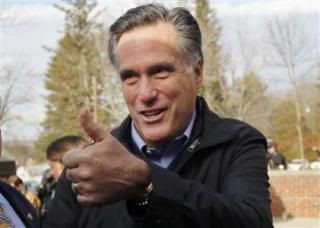

The squeaky clean fix!!!
Yes it is.
But buy into it?
I dare you not to.
Dare ya.
Betcha you cain’t he’p yo’se’f.
Betcha.
FOUR MORE YEARS!!!
FOUR MORE YEARS!!!
FOUR MORE YEARS!!!
Betcha.
Watch.
Blinky Palermo had nuthin’ on these guys.
Betcha.
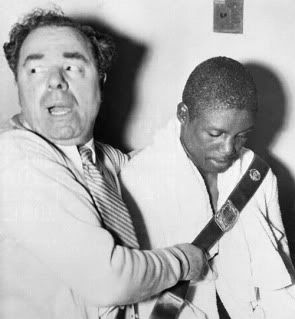
Nuthin’.
Watch.
AG

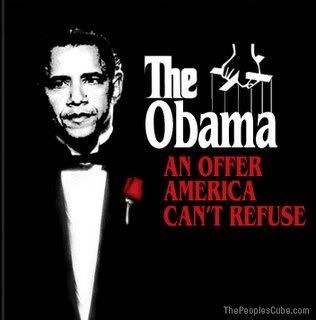


Booman is having troll/spam problems, so I don’t know if people will be able to immediately respond to this post. I can relate. The entire system…from my own little site aimed at a small subset of serious musicians right on through everybody’s email and on up into the entire political system has been pretty well spammed, scammed and trolled-out. People running for national office…the most powerful positon in the world in terms of sheer potential destructive capabilities…are beholden to scammers like Adelson for their financial support. It’s a sad scene.
Hang on…it’ll either get better or it will get so bad that we won’t have much left to worry about.
Remember…everything gets better except the last thing.
Bet on that for sure.
AG
Great minds think alike.